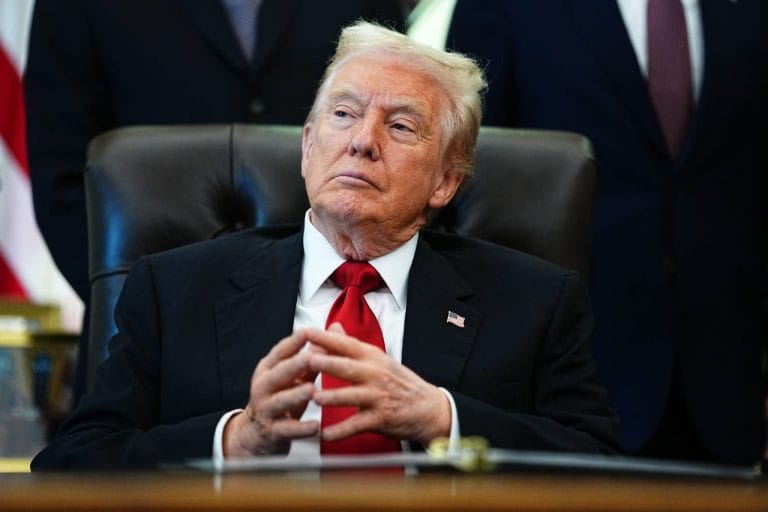🎧 Listen to This Article
Former U.S. President Donald Trump suggested giving most Americans $2,000 funded by tariff revenues, in a move aimed at rallying public support and appealing to voters ahead of ongoing debates over trade and taxation. The plan, outlined on Trump’s Truth Social platform on Sunday, would likely require Congressional approval to take effect.
Trump announced that a “dividend of at least $2,000 per person” would be distributed, excluding high-income Americans. In his post, he also criticized opponents of tariffs, labeling them “FOOLS!”.
Earlier this year, Republican Senator Josh Hawley introduced a similar bill proposing $600 tariff rebates for nearly all Americans and their dependent children. Hawley argued that Americans deserve compensation after policies from the Biden administration “devastated families’ savings and livelihoods.”
Fiscal feasibility
Analysts warn that the proposed $2,000 payments could exceed revenues collected from tariffs. According to the U.S. Treasury Department, customs duties totaled $195 billion during the first three quarters of 2025.
- Erica York, vice president of federal tax policy at the Tax Foundation, calculated that if the cutoff is $100,000 in income, 150 million adults would qualify, totaling around $300 billion, and including children would increase the cost further.
- John Arnold, co-chair of Arnold Ventures, estimated the payments could reach $513 billion, far surpassing tariff revenues.
Treasury Secretary Scott Bessent has emphasized that the administration’s priority remains reducing the national debt, currently at $38.12 trillion, using tariff funds rather than issuing rebate checks.
Impact on consumers
Since the introduction of widespread tariffs in April, U.S. consumers are effectively paying an average tariff rate of nearly 18%, the highest since 1934. Companies have passed some of the costs onto buyers, meaning tariffs have indirectly affected household budgets.
Historical context
This is not the first time Trump has floated the idea of tariff-based stimulus checks.
- In October, he suggested checks ranging from $1,000 to $2,000.
- In July, he raised the idea again, while in February, alongside tech entrepreneur Elon Musk, he considered $5,000 “dividend” checks under a government efficiency initiative dubbed Doge. None of these payments materialized.
Meanwhile, the U.S. Supreme Court recently heard arguments on the legality of Trump’s global tariffs, expressing skepticism over their scope.
For any questions, clarifications, feedback, or contributions regarding this article, please contact us at editorial@tax.news. We welcome your input and are dedicated to delivering accurate, timely, and insightful tax news. All inquiries will be handled confidentially in accordance with our privacy policy.



